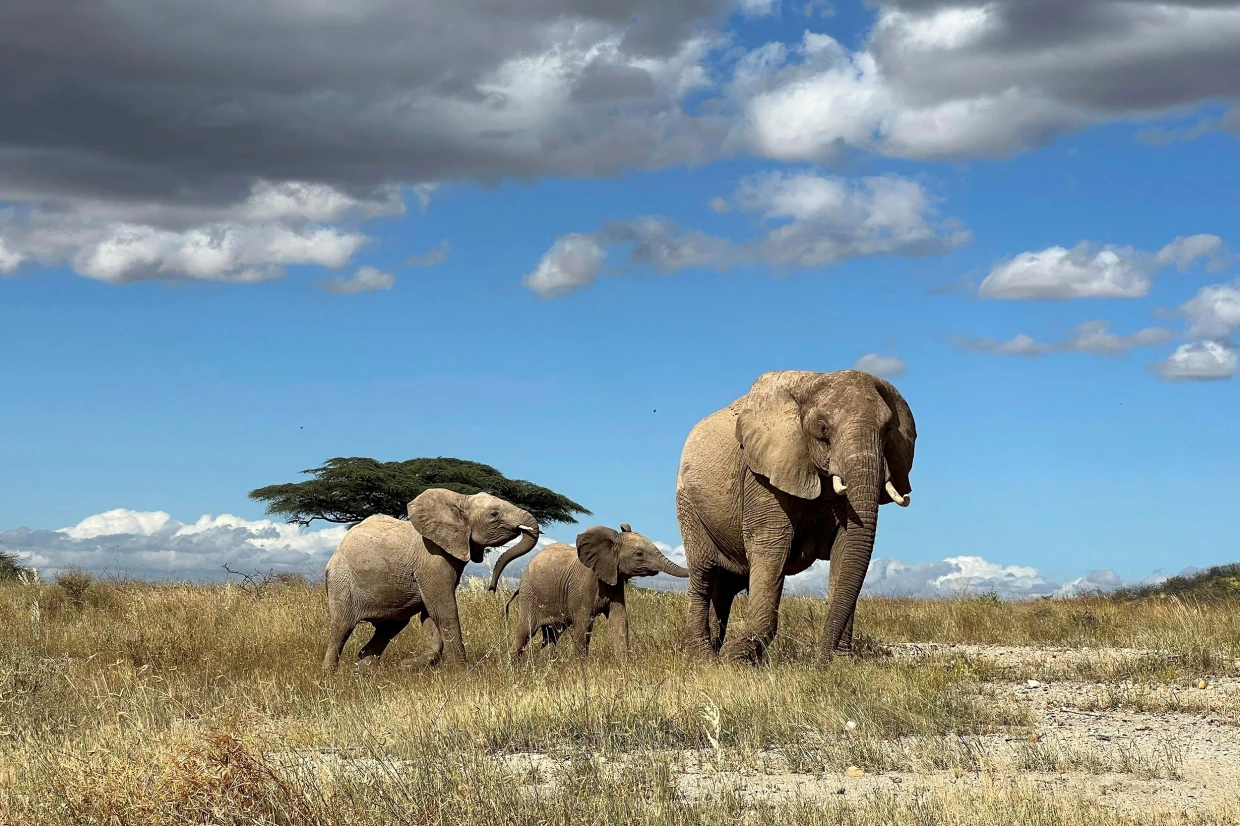African elephants have been found to call each other by individual names, a behavior that is exceptionally rare among wild animals, according to new research published Monday.
These distinctive names are embedded within the elephants’ deep rumbles, allowing communication over vast distances across the savanna. Scientists suggest that species with intricate social structures and familial dynamics, often separating and reuniting, are more inclined to employ individual names.
“In caring for a large family, being able to address specific individuals becomes essential. It’s like saying, ‘Hey, Virginia, come over here!'” explained Duke University ecologist Stuart Pimm, who was not part of the study.
The use of unique names among wild animals is exceedingly uncommon. While humans and domesticated dogs respond to names, baby dolphins develop their own signature whistles, and certain parrot species may also employ names.
Notably, these species possess the ability to learn and pronounce new sounds throughout their lives—a rare skill shared by elephants.
In the study published in Nature Ecology & Evolution, researchers utilized machine learning to identify the use of names within a library of savanna elephant vocalizations recorded at Kenya’s Samburu National Reserve and Amboseli National Park.
By observing elephant behavior and vocalizations in the field, the researchers were able to determine instances where an individual was called upon and responded, such as a mother addressing her calf or a matriarch summoning a straggler back to the family group.
Analysis of the audio data revealed that the computer model accurately predicted the addressed elephant in 28% of cases—often due to the inclusion of its name. Conversely, when provided with meaningless data, the model correctly identified only 8% of calls.
“Just as humans do, elephants utilize names in their communication, although likely not in every instance. Therefore, we wouldn’t expect a 100% identification rate,” explained study author and Cornell University biologist Mickey Pardo.
While elephant rumbles contain frequencies below human hearing, researchers have yet to pinpoint which elements of the vocalization serve as names.
To validate their findings, researchers played recordings to individual elephants, observing heightened responses—such as flapping ears and lifted trunks—when their names were included. At times, elephants disregarded vocalizations not directed at them.
“Elephants are highly social animals, constantly engaging in communication and physical contact. Naming likely plays a crucial role in their ability to interact on an individual level,” remarked co-author and Colorado State University ecologist George Wittemyer, also a scientific adviser for the nonprofit Save the Elephants.
“This study offers a glimpse into the intricate world of elephant cognition.”
